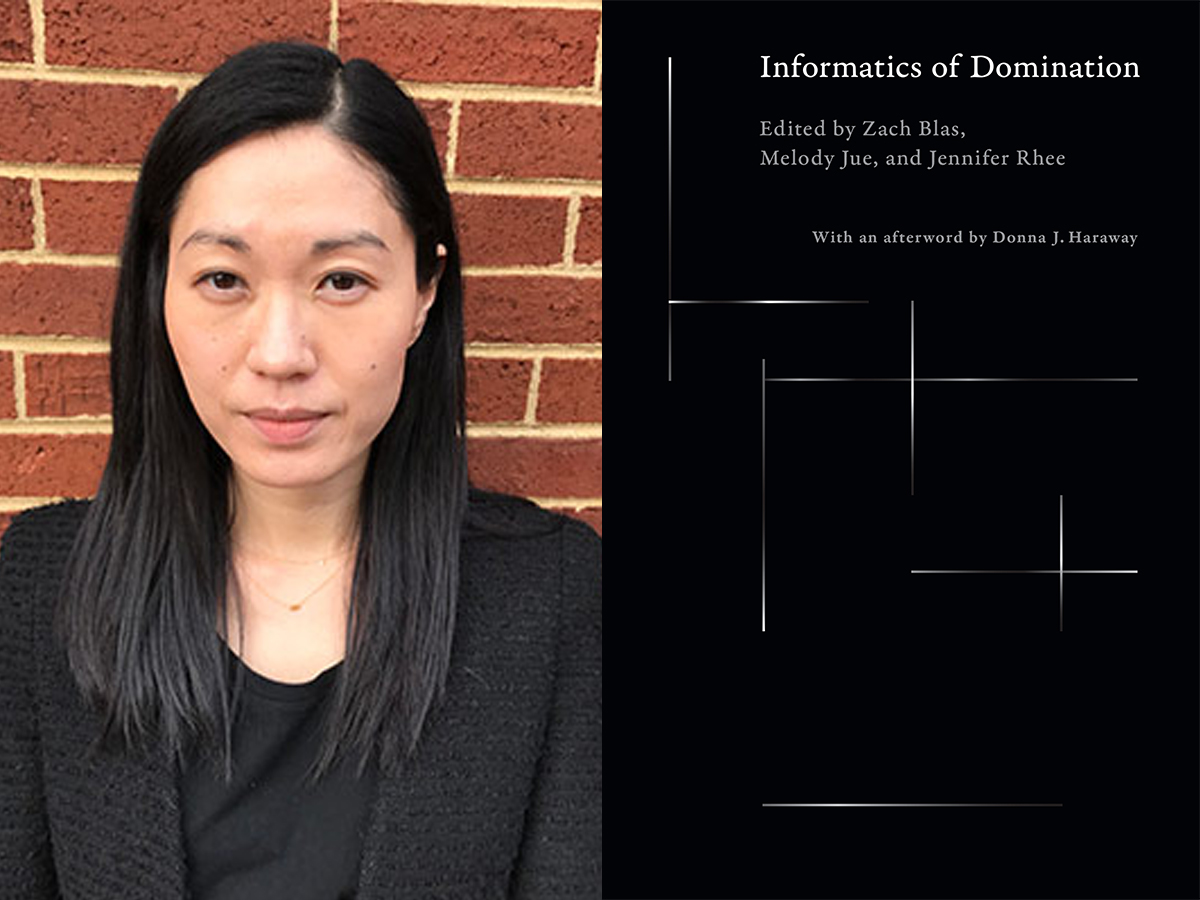Informatics of Domination

Date: Monday, Oct 27, 2025
Start time: 12:00 PM
End time: 1:00 PM
Location: Online via Zoom
Audience: Open to all
Informatics of Domination is an experimental collection addressing formations of power that manifest through technical systems and white capitalist patriarchy in the twenty-first century. The volume takes its name from a chart in Donna J. Haraway’s canonical 1985 essay “A Manifesto for Cyborgs.” Haraway theorizes the informatics of domination as a feminist, diagrammatic concept for situating power and a world system from which the figure of the cyborg emerges. Informatics of Domination builds on Haraway’s chart as an open structure for thought, inviting fifty scholars, artists, and creative writers to unfold new perspectives. Their writings take on a variety of forms, such as essays on artificial intelligence, disability and protest, and transpacific imaginaries; conversations with an AI trained on Black oral history; a three-dimensional response to Mexico-US border tensions; hand-drawn images on queer autotheory; ecological fictions about gut microbiomes and wet markets; and more. Together, the writings take up the unfinished structure of the chart in order to proliferate critiques of white capitalist patriarchal power with the study of information systems, networks, and computation today. This volume includes an afterword by Haraway.
About the Authors
Jennifer Rhee is Associate Professor of English and founder and co-director of the HRC’s AI Futures Lab. Working across technology, contemporary art, and speculative fiction, her research focuses on artificial intelligence as it pertains to race, gender, disability, and labor and connects AI systems' algorithmic and ecological dimensions. She is the author of The Robotic Imaginary: The Human and the Price of Dehumanized Labor (University of Minnesota Press, 2018). She also co-edited Informatics of Domination (Duke University Press, 2025) with Zach Blas and Melody Jue and The Palgrave Handbook of Twentieth- and Twenty-First Century Literature and Science (Palgrave, 2020) as a member of the Triangle Collective.
Dr. Rhee's research has appeared or is forthcoming in journals including Cultural Critique, Camera Obscura, ASAP/Journal, American Literature, and Configurations, as well as in numerous edited volumes. She recently completed a book manuscript titled Not Inevitable: Counternarratives for Other AI Futures. This book project refutes widespread, misleading narratives about AI and offers corrective counternarratives that more accurately reflect how specific AI systems work and do not work, whom these systems harm, how these systems’ seemingly inevitable dominance has been repeatedly disproven on local scales, and how a range of alternate AI futures that center community care and justice are being imagined and realized outside of Silicon Valley.
Melody Jue is a Professor of English at the University of California, Santa Barbara, working across the fields of ocean humanities, science fiction, science studies, and media theory. She is the author of Wild Blue Media: Thinking Through Seawater (Duke University Press, 2020), which won the 2020 Speculative Fictions and Cultures of Science book award. She is the co-editor with Rafico Ruiz of Saturation (Duke University, 2021) and co-editor with Zach Blas and Jennifer Rhee of Informatics of Domination (Duke University Press, 2025).
Professor Jue has published articles in journals including Grey Room,Configurations, Women’s Studies Quarterly, Resilience, and Media+Environment. Her new work explores the mediations of seaweeds in trans-Pacific contexts.
Zach Blas is an artist, filmmaker, and writer whose practice spans moving image, computation, theory, performance, and science fiction.
Professor Blas engages the materiality of digital technologies while also drawing out the philosophies and imaginaries lurking in artificial intelligence, biometric recognition, predictive policing, airport security, the internet, and biological warfare. The Doors (2019) is an immersive environment that imagines a new psychedelic age fueled by AI, nootropics, and tech culture. SANCTUM (2018) is a sex dungeon-cum-detention center that recasts security and surveillance through BDSM. A film installation, Contra-Internet: Jubilee 2033 (2018) follows author Ayn Rand on an acid trip, in which she bares witness to a dystopian future of the internet. im here to learn so :)))))) (2017), a four-channel video installation and collaboration with Jemima Wyman, resurrects Microsoft AI Tay to consider the gendered politics of pattern recognition and machine learning. Facial Weaponization Suite (2011-14) consists of amorphous masks that demand opacity against biometric facial recognition systems.
Event contact: Ellie Musgrave, musgraveec@vcu.edu